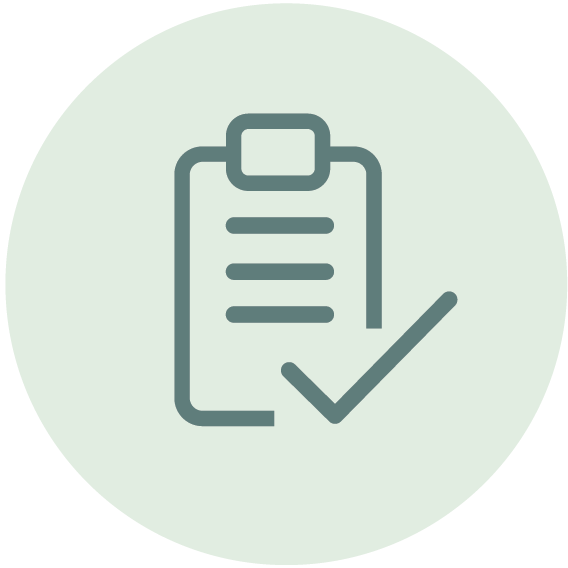This course is intended for software developers wanting to build AI infused applications that leverage Azure Cognitive Services, Azure Cognitive Search, Microsoft Bot Framework and Azure Open AI services. The course will use C#, Python, or JavaScript as the programming language.
This course has been updated with Azure Open AI Services to take advantage of large-scale, generative AI models with deep understandings of language and code to enable new reasoning and comprehension capabilities for building cutting-edge applications. We will apply these coding and language models to a variety of use cases, such as writing assistance, code generation, and reasoning over data. The training will also explore how to detect and mitigate harmful use with built-in responsible AI and access enterprise-grade Azure security.
|
|
Course goals |
By attending this course you will gain the following skills:
|
|
Audience |
Software engineers concerned with building, managing, and deploying AI solutions that leverage Azure Cognitive Services, Azure Cognitive Search, Microsoft Bot Framework and Azure Open AI services. They are familiar with C#, Python, or JavaScript and have knowledge on using REST-based APIs.
|
|
Prerequisites |

Module 1: Create and Manage Azure Cognitive Services
Prior to accessing any of the Cognitive Services functionality on Azure, you will need to create a Cognitive Services resource. Using the various services (Speech, Computer Vision etc.), requires, at a minimum, an access key and a service endpoint URL. The information is required for authorization of applications that will be accessing these services. You will create either a single-service resource or a multi-service resource, depending on the services you access.
Module 2: Implement Computer Vision Solutions
Learn how to integrate visual AI in your applications using Azure Computer Vision. Detect and identify faces or objects in images and video, perform object detection, classify images, and implement custom vision solutions.
Module 3: Implement Language Analysis Solutions
Learn how to implement natural language functionality in your applications through integration of the Language Understanding service. Gain insights into your users' intentions through text analytics features such as sentiment analysis and language detection. Identify important information in text files with entity and key phrase extraction capabilities.
Module 4: Implement Knowledge Mining Solutions
Azure Cognitive Search provides a cloud-based solution for indexing and querying a wide range of data sources and creating comprehensive and high-scale search solutions. Lean to implement a solution in which the documents are indexed and made easy to search.
Module 5: Implement Conversational AI Solutions
Use the Microsoft Bot Framework and the Bot Framework Composer to design and create conversational AI solutions.
Module 6: Implement Azure Open AI Services
We will explore how Azure OpenAI Service provides access to OpenAI's powerful language models including GPT-4, GPT-35-Turbo, Embeddings model series and others. These models can be easily adapted to your specific task including but not limited to content generation, summarization, semantic search, and natural language to code translation. Users will learn how to access the service through REST APIs, Python SDK, or the web-based interface in the Azure OpenAI Studio.
Module 7: Prompt engineering
In this module you will learn different techniques for prompt engineering and prompt flow for pre-trained models like GPT.
We will explore models like GPT-3.5, and GPT-4 from OpenAI that are prompt-based. With prompt-based models, the user interacts with the model by entering a text prompt, to which the model responds with a text completion. This completion is the model’s continuation of the input text.
While these models are extremely powerful, their behaviour is also very sensitive to the prompt. This makes prompt construction an important skill to develop.
We will explore Azure Machine Learning prompt flow. Azure Machine Learning prompt flow is a development tool designed to streamline the entire development cycle of AI applications powered by Large Language Models (LLMs). As the momentum for LLM-based AI applications continues to grow across the globe, Azure Machine Learning prompt flow provides a comprehensive solution that simplifies the process of prototyping, experimenting, iterating, and deploying your AI applications.
Module 8: Fine-tuning and working with your own data
In this module you will learn different techniques for customizing the pre-trained models like GPT for fine-tuning, embedding, working with your own data and using content filters for detecting and preventing the output of harmful content.
You will learn how to customize the pre-trained models through REST APIs, Python SDK, or the web-based interface in the Azure OpenAI Studio.
Azure OpenAI on your data enables you to run supported chat models such as GPT-35-Turbo and GPT-4 on your data. Running models on your data enables you to chat on top of and analyse your data with greater accuracy and speed. By doing so, you can unlock valuable insights that can help you make better business decisions, identify trends and patterns, and optimize your operations. One of the key benefits of Azure OpenAI on your data is its ability to tailor the content of conversational AI.
Read full, official course description:
AI-102: Develop AI solutions in Azure

Exam info:
This course will help you prepare for exam Microsoft Certified: Azure AI Engineer Associate
If you pass exam AI-102 you will get the certification:
Microsoft Certified: Azure AI Engineer

1. Hva koster kurset?
Prisen er 30 000 NOK, og inkluderer digitale kursdokumenter og hands-on laboratorier. (Lunsj og forfriskninger gjelder kun ved fysisk deltagelse.)
2. Hvor lenge varer kurset?
Kurset varer 5 dager. Dag 1 kl. 10:00-16:00, dagene 2-5 kl. 09:00-16:00.
3. Hva handler kurset om?
Dette kurset gir deg praktisk erfaring med å utvikle AI-infuserte applikasjoner i Azure ved hjelp av Cognitive Services, Cognitive Search, Microsoft Bot Framework og Azure OpenAI-tjenester. Du lærer å bygge løsninger som bruker tale, tekst, syn, språkmodellering, søk og generativ AI.
4. Hvem passer kurset for?
Kurset er for:
5. Hvilke forkunnskaper trenger jeg?
Du bør ha:
6. Hvilke ferdigheter får jeg etter kurset?
Du lærer å:
7. Er dette et praktisk kurs?
Ja. Kurset inkluderer betydelig hands-on arbeid i Azure med relevante laboppgaver gjennom alle moduler.
8. Får jeg kursbevis?
Ja, alle deltakere mottar kursbevis etter fullført kurs.
9. Hvilken sertifisering dekker kurset?
Kurset forbereder deg til eksamen AI-102, som gir sertifiseringen:
Microsoft Certified: Azure AI Engineer Associate.
10. Hvilket språk undervises kurset på?
Instruktøren underviser på norsk eller engelsk, mens kursmateriellet er på engelsk.
11. Kan jeg ta kurset digitalt?
Kurset kan gjennomføres både fysisk og virtuelt.

Etter å ha fullført AI-102 vil mange deltakere være klare for å fordype seg videre i enten Azure-plattformen, AI-utvikling, datahåndtering, eller enterprise-implementering av AI-løsninger. Følgende kurs er spesielt relevante:
1. DP-100: Designing and Implementing a Data Science Solution on Azure
For deg som ønsker å gå dypere inn i maskinlæring, modelltrening, MLOps og hele livssyklusen for AI/ML-modeller i Azure Machine Learning.
Passer for: AI-utviklere, data scientists og tekniske løsningsarkitekter.
2. AI-900: Introduction to AI in Azure
For deltakere som ønsker en bredere teoretisk forankring rundt AI, før de går videre mot mer spesialiserte løp. God repetisjon og sertifiseringsmulighet.
Passer for: Nye IT-profil og beslutningstakere som ønsker å forstå teknologien bak AI-løsningene de jobber med.
3. MS-4009: Extend Microsoft Copilot for Microsoft 365 with Copilot Studio eller Copilot-relaterte kurs
Disse kursene bygger videre på generativ AI og prompt engineering, men retter seg mot produktivitet, automatisering og business-prosesser – perfekt for IT-pros som skal rulle ut AI i organisasjonen.
Passer for: Administrators, utviklere, arkitekter og tekniske beslutningstakere.
4. AZ-204: Developing Solutions for Microsoft Azure
Det beste utviklerkurset for de som ønsker å mestre fullstack Azure-utvikling i tillegg til AI-løsninger. Lærer deg API-er, Functions, compute, sikkerhet og integrasjoner som ofte kombineres med AI-prosjekter.
Passer for: Azure-utviklere og integrasjonsarkitekter.
5. AZ-305: Designing Microsoft Azure Infrastructure Solutions
For de som vil ta steget fra utvikling til arkitektur. Gir en solid forståelse av hvordan man bygger skalerbare AI-løsninger som er sikre, robuste og compliant.
Passer for: Arkitekter og seniorutviklere.
6. DP-203: Data Engineering on Microsoft Azure
For AI-løsninger som skal skaleres, trengs god dataflyt. DP-203 er derfor naturlig for deltakere som vil jobbe med:
Passer for: Data engineers, AI engineers og arkitekter.